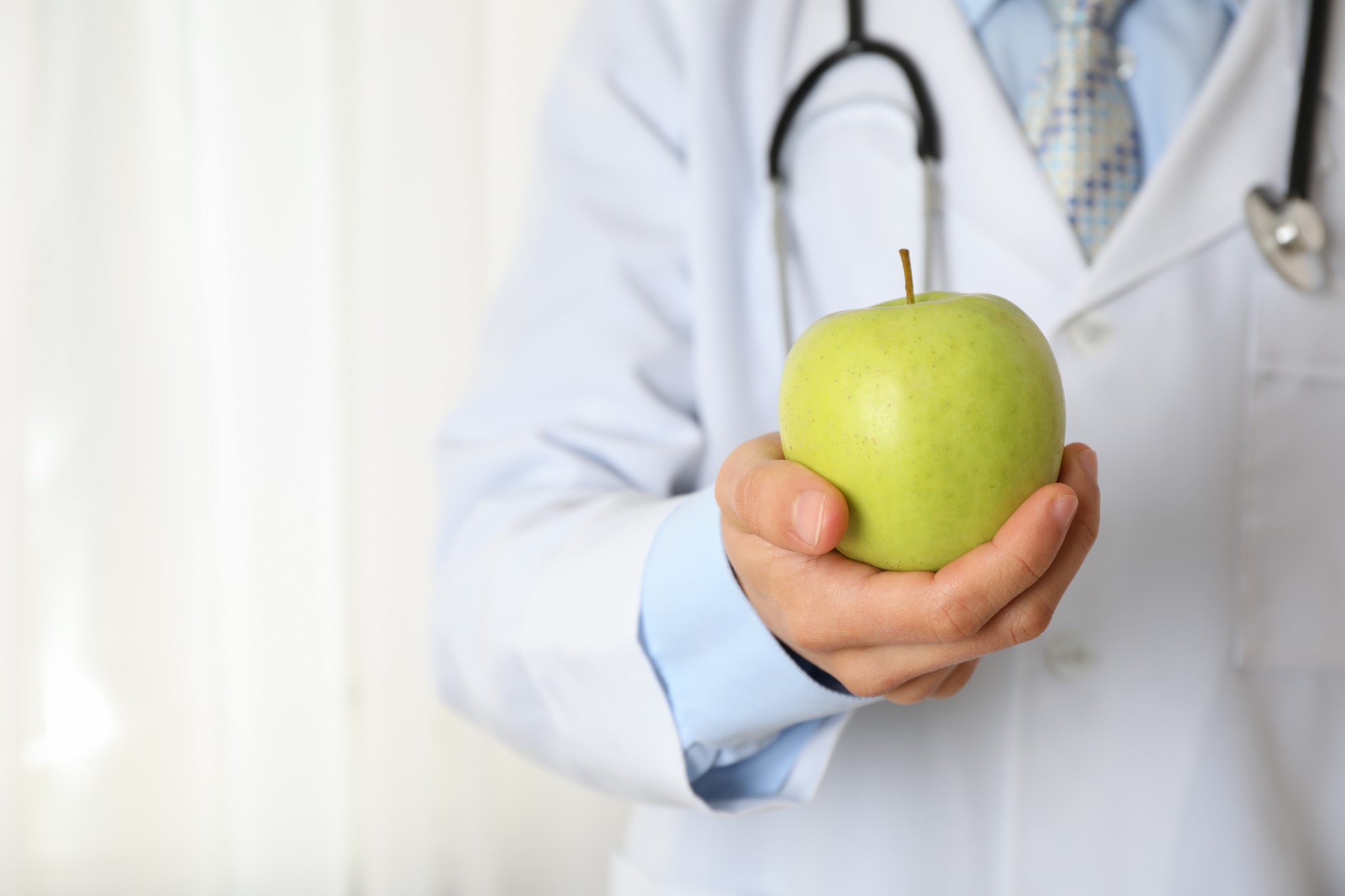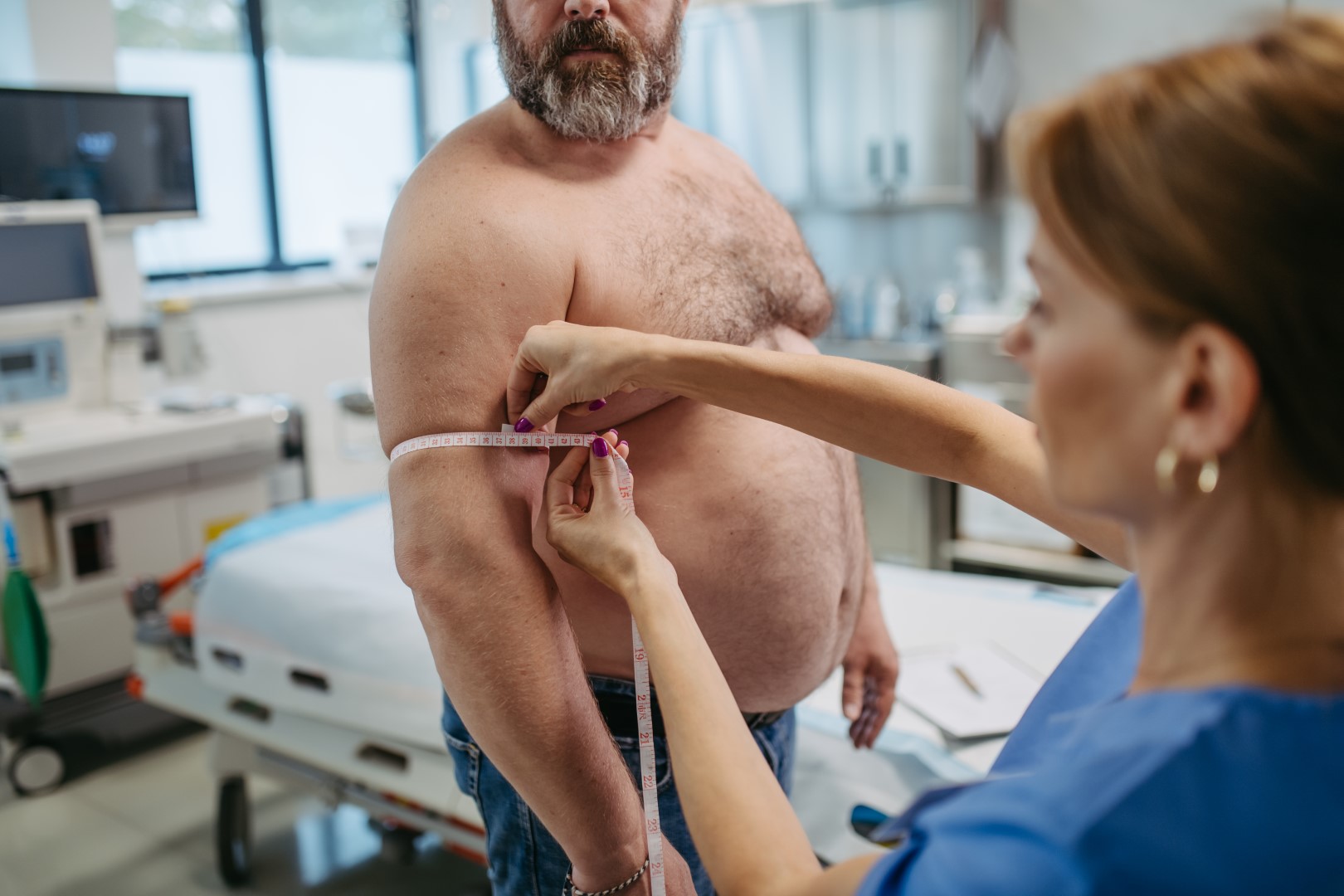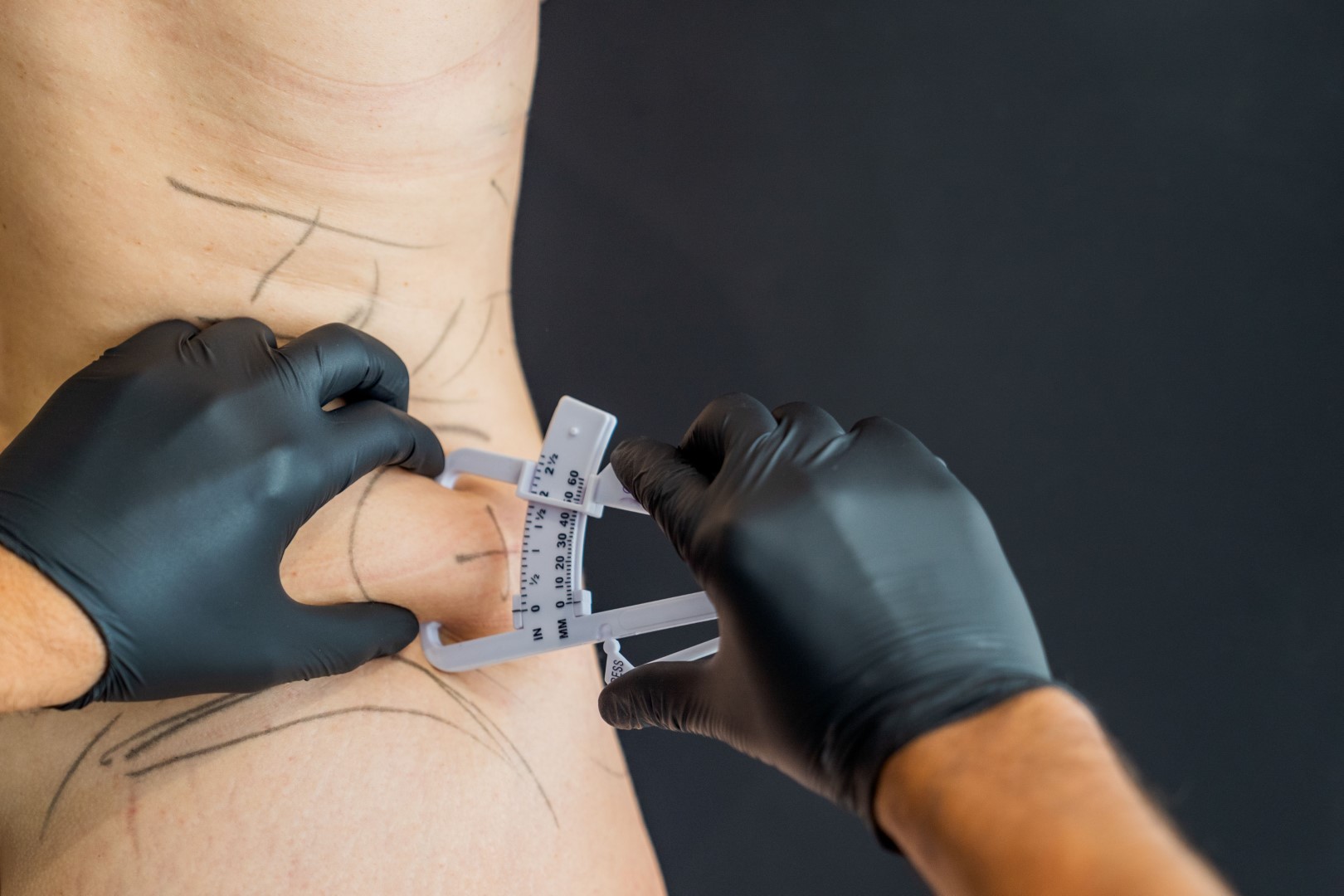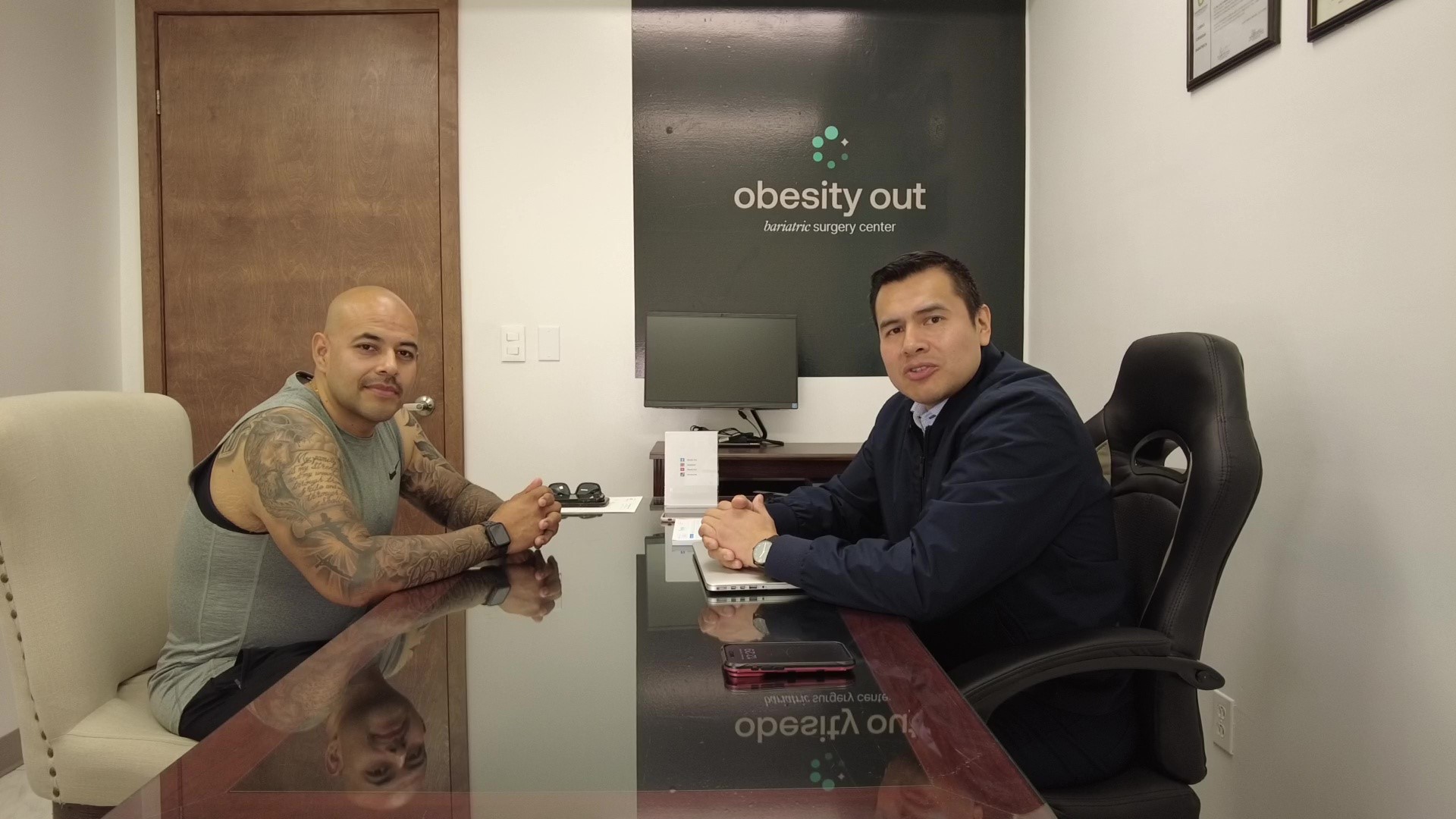The Bariatric Surgerya transformative procedure that has helped countless people fight severe obesity, does not end in the operating room. In fact, the real journey begins after the operation, with a crucial focus on postoperative diet and nutrition. Experts such as Dr. Luis Canoa renowned surgeon in Bariatric Surgery in Tijuanaemphasize the importance of adhering to a proper dietary regimen after procedures such as the Gastric Bypassthe Gastric Sleeve or the Mini Gastric Bypass to ensure the long-term success of the treatment.
This new phase in the road to recovery and health requires a significant change in how patients approach nutrition. Postoperative dietary decisions not only influence effective weight loss, but also the maintenance of that loss and the prevention of potential nutritional complications. The diet after bariatric surgery is unique to each individual and should be tailored to their specific needs and the type of surgery performed.
A través de esta nota, exploraremos las pautas generales de la dieta postoperatoria, los alimentos que se deben evitar a toda costa, y si es posible reintegrar alimentos considerados ‘prohibidos’, como la pizza o la pasta, en la dieta. Además, discutiremos la importancia crítica de los suplementos vitamínicos y cómo pueden ayudar a los pacientes en su recuperación y en el mantenimiento de una salud óptima. Nuestro objetivo es proporcionar una guía detallada y útil que ayude a los pacientes a navegar con éxito la etapa postoperatoria, convirtiendo la cirugía bariátrica en el comienzo de una vida más saludable y satisfactoria.
What is the typical diet after bariatric surgery?
After undergoing bariatric surgery, either a bariatric surgery Gastric Bypass, Gastric Sleeve o Mini Gastric BypassIn order to facilitate healing and maximize weight loss, patients must adhere to a special diet. This diet, focused by experts such as the Dr. Luis Cano at Bariatric Surgery in Tijuanais structured in several phases, each with its own characteristics and duration.
- Liquid Phase: Immediately after surgery, the diet is limited to clear liquids to avoid strain on the newly operated stomach. This includes broths, diluted juices and sugar-free drinks. This phase usually lasts one to two weeks.
- Pure or Crushed Food Phase: Once liquids are tolerated, patients progress to pureed or pureed foods. These foods are high in protein and low in fat and sugar. Examples include pureed fruit, scrambled eggs and yogurt.
- Soft Food Phase: After a few weeks in the pure food phase, patients can begin to introduce soft foods, such as cooked fish, chicken and cooked vegetables.
- Modified Regular Diet: Finally, patients progress to a regular but modified diet. Although they can eat most foods, portions are small and they must avoid foods high in fat, sugars and empty calories.
It is crucial that patients follow the directions of their medical team and work with a dietitian who specializes in Bariatric Surgery to ensure that they are getting essential nutrients while adapting to their new stomach.
What Foods Can You Never Eat Again After Bariatric Surgery?
Tras una cirugía bariátrica, ciertos alimentos deben evitarse para prevenir complicaciones y garantizar una pérdida de peso efectiva y saludable. Aunque la lista de alimentos “prohibidos” puede variar ligeramente dependiendo de cada paciente y el tipo de cirugía realizada, hay ciertos alimentos que comúnmente se recomienda evitar:
- Foods High in Fat and Sugars: Foods high in fats and sugars, such as cakes, cookies, ice cream and fast foods, can cause dumping syndrome, a condition in which food moves too quickly through the stomach and causes nausea, vomiting, dizziness, sweating and diarrhea.
- Carbonated and caffeinated beverages: Carbonated beverages and caffeinated drinks can be irritating to the stomach and may contribute to gas formation and bloating.
- Difficult to Digest Foods: Fresh bread, red meat and fruit and vegetable peels can be difficult to digest and may cause gastric discomfort or clogging in the smaller stomach area.
- Alcohol: Alcohol is not only high in calories but can also adversely affect the liver and stomach, and is absorbed differently after surgery, increasing the risk of rapid intoxication.
It is important to note that bariatric surgery is a tool for weight loss, but diet and healthy lifestyle are critical to maintain long-term results. The Dr. Luis Cano and other experts in Bariatric Surgery in Tijuana advise their patients on how best to adapt their post-operative eating habits to ensure long-term success and health.
Can I Go Back to Eating Pizza or Pasta After Bariatric Surgery?
A common question among patients undergoing bariatric surgery, such as the Gastric Bypass or the Gastric Sleeveis whether they will be able to enjoy foods such as pizza or pasta again. The answer depends on several factors, including the type of surgery performed, the patient's individual tolerance and how these foods are integrated into their postoperative diet.
In the early postoperative stage, these foods should be avoided due to their high calorie, fat and carbohydrate content. In addition, starchy foods such as pasta can expand in the stomach and cause discomfort. However, once the patient has advanced in the recovery process and has managed to establish a healthy and balanced diet, it is possible to reintroduce these foods in small quantities and in healthier versions.
The Dr. Luis Canoexpert in Bariatric Surgery in TijuanaThe dietary advice, if you choose to eat pizza or pasta, is to opt for low-carbohydrate and low-fat options, such as cauliflower-based pizza or vegetable pasta. In addition, it is essential that these foods be consumed in controlled portions and as part of a balanced diet to maintain weight loss results and overall health.
It is important to remember that each patient is unique and the reintroduction of certain foods should be done under the guidance of a nutritionist or a physician specializing in post-bariatric nutrition. The key is to find a balance and adapt the diet to meet nutritional needs without compromising the results of the surgery.
What Vitamins Should I Take After Bariatric Surgery?
After a bariatric surgery, such as the Gastric Bypass or the Gastric SleeveIn addition, the body undergoes significant changes in the way it absorbs nutrients. For this reason, vitamin supplementation becomes a crucial aspect of recovery and long-term health maintenance. The Dr. Luis Cano and other specialists in Bariatric Surgery in Tijuana usually recommend a supplement regimen to avoid nutritional deficiencies.
Common post-bariatric surgery supplements include:
- Multivitamins: A daily dose of a multivitamin with minerals is essential to compensate for reduced nutrient absorption.
- Vitamin B12: Because bariatric surgery can affect the absorption of vitamin B12, B12 supplements are often necessary. B12 is crucial for nerve function and blood cell formation.
- Iron: Iron supplements are important to prevent anemia, especially in women of childbearing age.
- Calcium and Vitamin D: These supplements are vital to maintain bone health, as surgery can affect calcium absorption. Calcium should be taken in citrate form for better absorption.
- Proteins: Although not a vitamin, protein supplementation may be necessary to ensure adequate intake, crucial for healing and maintenance of muscle mass.
It is critical that each patient follow a personalized supplementation plan, developed in consultation with his or her healthcare team. Regular monitoring and laboratory testing will help adjust supplements as needed to ensure that all of the patient's nutritional needs are met.
To conclude
Postoperative feeding after surgery Bariatric Surgery is a fundamental pillar in the journey towards a healthier and more active life. It is a stage that requires commitment, discipline and a re-evaluation of eating habits. The long-term success of procedures such as the Gastric Bypassthe Gastric Sleeve and the Mini Gastric Bypass depends largely on how patients manage their diet and nutrition after surgery.
Specialists such as Dr. Luis Cano at Tijuana, MexicoThe patients, however, emphasize the importance of following established nutritional guidelines and maintaining constant communication with the health care team. The gradual reintroduction of different foods and the adoption of a balanced diet are essential to ensure that the body recovers properly and adapts to its new way of processing food. In addition, compliance with a vitamin supplement regimen is crucial to avoid nutritional deficiencies and ensure optimal health.
Although there may be restrictions on certain foods, and some may never be able to be consumed as before, this does not mean that patients cannot enjoy a varied and satisfying diet. With proper guidance and creativity in the kitchen, it is possible to find healthy and delicious alternatives that align with post-surgery nutritional needs.
Ultimately, bariatric surgery is not just a medical intervention, but a lifestyle change. Adopting and maintaining a healthy, balanced approach to food and nutrition is key to maximizing the benefits of surgery and enjoying an improved quality of life. With the right support and personal determination, patients can achieve and maintain their long-term health and wellness goals.






